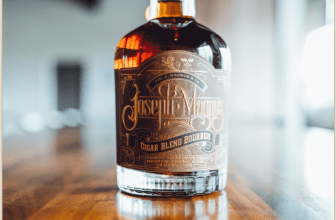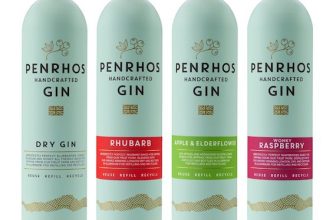
Every day, spirit brands seem to be crowing about the awards or accolades they have won. Whether meaningful or not, press releases and brand pitches abound with “we won this” or “we won that” to the point where I often wonder what difference it makes.
At the same time, the purveyors of the award programs are all over the place with implicit vows of brand supremacy and recognition. They seem to be saying that if you enter our contest or event and vie for glory, not to mention recognition, you’ll succeed.
So, let’s take a brief look at awards and accolades from several viewpoints — the awards in general, the trade, the makers, and the impact on consumers. Let’s separate fact from myth, with a few opinions thrown in.

Fact: Major and mainstream brands don’t need or use awards as a distinguishing characteristic. Of course, they don’t need to at this stage in their development. But, even at the outset, brands like Tito’s, Patron, Absolut, Bulleit, and others did not use accolades as a reason for being. Perhaps it was because there were far fewer award contests or because their message, brand attributes, and market positioning were sufficient to win over the trade and consumer.
The only exception I’ve seen is on behalf of line extensions, and then only sporadically. I suspect that a zealous brand manager from a top brand managing a line extension will be attracted to enter the brand in an award contest to show management that the investment in the extension is worthwhile. (Not to mention how great they manage the brand.)
Opinion: Among award suppliers, not all are created equal. I’m not looking to review these companies or make any recommendations, but the two that stand out, in my opinion, are the Ultimate Spirits Challenge and San Francisco Spirits Competition. Sure, there are many other excellent suppliers, but I’m impressed with these two because of their longevity, the people who run them, and the acumen of the judges most of the time.
Speaking of judges, that’s a critical dimension. I have a client and friend who entered his craft product in both these events. Interestingly, one is on the east coast, and one is on the west: same product but markedly different scores. There must be palate differences east and west — why else would he have received double gold in one place and bronze in the other? The only further explanation is that the product produced in one area reflected the taste of that area but didn’t translate across the country.
Fact: Craft brands enter contests that they presume will enhance their go-to-market ability. It’s about recognition and trying to influence distributors and retailers.
Fact: If a craft brand has deep enough pockets, they can enter tons of award events and collect medals (some meaningful, most not) and get lots of bragging rights.
Fact: The best aspect of awards is the opportunity for brand publicity and use on social media.
Fact: But…It’s not about the award itself; it’s how to monetize it.
Fact: Awards don’t build brands. A unique and relevant proposition, together with sound strategies and tactics, and pounding the pavement is what it takes. There are no shortcuts.
Myth: The trade cares about brand awards. The reality is that they look at new brand awards, and it becomes a sort of ‘ticket of admission.’ For many, it’s like chicken soup when you have a cold; it might not help but can’t hurt.
That’s because…
Fact: Brand awards are overdone and a dime a dozen.
Myth: Consumers focus on awards in their decision-making process.
Let’s get real — there are tons of prizes and brands shouting about them — some are multiple golds and some ‘honorable mention;’ some are from no-name award events, some from meaningful ones. Who has time or interest in considering awards to make a purchase?
I’ll tell you what, in my experience, works best — a number on a shelf talker (adjacent to the bottle). A rating of 90+ captures the attention of someone looking to try something new and has more meaning than tons of not understood and pointless glitter. Thank you, wine industry, for using numeric ratings in highlighting top wine brands.
Fact: The only people benefiting from awards are the organizers of the award events. A close second is the brand owner, who thinks that awards are the quick and easy way to succeed.
# # #
If I were to be philosophical and more than a little meanspirited (who me?) I’d say that the award culture we live in stems from the past 40 years or so, starting with camps, organized sports, and other efforts, whereby just showing up earned an award, plaque, or trophy. As my friend and business partner, Rob Warren, says, “It’s the syndrome where everyone who plays or pays gets an award.”
Sure, show them an award or two as an aside, but not the focal point of your brand proposition. To win in the booze business, you need way more than that.
Let me know what you think.







